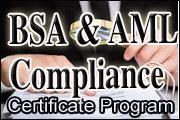Key Teller And Bank Account Management FunctionsThe Bank Training Center offers a wide variety of training courses to help you improve teller and bank account management skills. Here you will find training courses on opening individual, business, minor, trust, and IRA accounts, plus tips for handing your everyday account management needs.What Are The Major Teller Functions?- Customer Service:
Tellers serve as the frontline representatives of the bank, providing assistance and information to customers regarding their accounts, banking products, and services. They may also address customer inquiries and resolve basic account-related issues. - Cash Handling:
Tellers are primarily responsible for accepting deposits from customers, which may include cash, checks, and other negotiable instruments. They also dispense cash withdrawals to customers upon request. - Check Cashing:
Tellers verify the authenticity of checks presented by customers and cash them if funds are available in the account or if the bank offers check-cashing services. They may also place holds on checks that require further verification. - Transaction Processing:
Tellers process various types of financial transactions, such as deposits, withdrawals, transfers between accounts, and payments. They ensure accuracy and compliance with bank policies and procedures while recording transactions in the bank's computer systems.  - Product and Service Promotion:
Tellers may promote and cross-sell banking products and services, such as savings accounts, certificates of deposit (CDs), loans, credit cards, and investment options, based on customers' needs and financial goals. - Recordkeeping and Reporting:
Tellers must maintain accurate records of transactions, balances, and cash inventories. They reconcile their cash drawers at the end of each shift and prepare reports for management on transaction activity and cash balances. - Security and Compliance:
Tellers adhere to security protocols to safeguard against fraud, theft, and unauthorized access to customer accounts. They also must ensure compliance with a variety of regulatory requirements, such as the Bank Secrecy Act (BSA) and anti-money laundering (AML) regulations.
What Are The Most Common Teller Mistakes?- Identity Verification:
Neglecting to properly verify a customer's identity can result in fraudulent transactions or unauthorized access to accounts. - Incorrect Transactions:
This includes errors such as depositing money into the wrong account, withdrawing an incorrect amount, or issuing an incorrect check. - Math Errors:
Tellers may make mistakes in counting cash or calculating balances, leading to discrepancies in account balances. - Cash Handling Errors:
This includes giving incorrect change, miscounting cash deposits, or failing to balance cash drawers at the end of a shift.  BSA and AML Compliance: BSA and AML Compliance:
Tellers must comply with the Bank Secrecy Act (BSA), anti-money laundering (AML), and other regulations, including SAR notifications. - Procedural Mistakes:
Not following bank procedures and protocols, such as properly documenting transactions or adhering to security measures, can lead to errors and potential security breaches. - Poor Product Knowledge:
Tellers should know the basic account management products, such as IRAs and safety deposit boxes, how to handle the account opening procedures for minor and trust accounts, plus what to do if a customer passes.
...and the big one:
- Customer Service Issues:
Providing poor customer service, such as being rude or unresponsive to customer inquiries, can result in dissatisfaction and potential mistakes.
Bottom line, it is important for banks to have robust training programs, quality control measures, and effective communication channels in place to minimize these mistakes and ensure a positive customer experience.
Recommended Bank Account Management Training CoursesFor Opening New Accounts
 The courses listed below deal with typical new account opening procedures such as titling, ownership, TIN, and authorized signers for ownership and death payouts. The courses listed below deal with typical new account opening procedures such as titling, ownership, TIN, and authorized signers for ownership and death payouts.
For Account Management
The courses listed below deal with day-to-day account management issues such as dealing with signature cards, subpoenas, and POAs, changing signers on business accounts, and what to do when an account owner dies.Find Bank Account Management Training CoursesTo find your desired Account Management training courses, either select a Recommended Course from the list above, or select "Account Management" and your state from the "Professional Development" section of the search box at the bottom of this page. |






